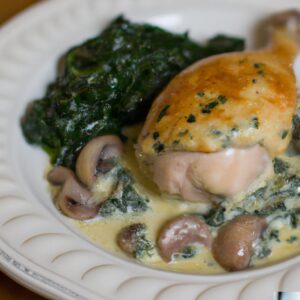Maintaining a diet is essential for overall well-being, particularly good heart health. Some common foods are bad for your heart health that cardiologists encourage us to avoid. We take a look at 18 foods to avoid if we want to keep our heart healthy:
Processed Meats
Processed meats like bacon, sausages, and deli meats are high in saturated fats, sodium, and preservatives, which can increase the risk of heart disease. Research published in UCLA indicates that eating 150g of processed meats a week increases the chance of developing cardiovascular diseases by 46%. This is because these foods often contain nitrates and nitrites that can damage blood vessels and contribute to arterial stiffness.
Sugary Beverages
Sugary drinks, including sodas, energy drinks, and sweetened teas, are loaded with added sugars that can lead to weight gain, insulin resistance, and high blood pressure. Cardiologists recommend limiting the intake of these beverages and choosing water, unsweetened tea, or sparkling water with a splash of fruit juice instead.
Fast Food
Fast foods often contain unhealthy fats, sodium, and calories, contributing to cardiovascular issues. Burgers, fries, and fried chicken are particularly harmful due to their trans fat content. Preparing fresh meals at home gives you better control over your food’s fat and salt content.
White Bread and Refined Grains
Refined grains, such as those found in white bread, pasta, and pastries, lack fiber and essential nutrients. They can spike blood sugar levels, leading to increased hunger and overeating, negatively affecting heart health. Whole grains like oats, brown rice, and whole wheat products are healthier alternatives that support strong cardiovascular function.
Packaged Snacks
Chips, crackers, and other packaged snacks often contain high trans fats, sodium, and artificial additives. These ingredients can elevate cholesterol levels and blood pressure, so you should choose healthier snacks like nuts, seeds, fruits, and vegetables, which provide essential nutrients.
Red Meat
Frequent consumption of red meat, such as beef and pork, is linked to higher risks of heart disease due to its saturated fat content. The American Heart Association has published research that says this could be to how red meat affects our gut microbe response. Reducing red meat intake and incorporating more plant-based proteins like beans, lentils, and tofu can benefit heart health. For those who prefer meat, lean cuts and moderation are key.
Full-Fat Dairy Products
Full-fat dairy products, including cheese, butter, and cream, are high in saturated fats that can raise LDL cholesterol levels. Cardiologists suggest choosing low-fat or fat-free versions of these products or using alternatives like almond milk or olive oil-based spreads.
Pastries and Baked Goods
Pastries, cakes, and cookies are typically high in added sugars, unhealthy fats, and refined grains. These ingredients can contribute to weight gain, inflammation, and heart disease. Homemade baked goods using whole grains and natural sweeteners can be a healthier choice, but even these should be limited.
Alcohol
While moderate alcohol consumption may have some heart benefits, excessive drinking can lead to high blood pressure, heart failure, and stroke. Cardiologists recommend drinking up to one drink per day for women and two for men, or you can consider alcohol-free options like herbal teas or flavored sparkling water.
Salt
Excessive salt intake is a major contributor to high blood pressure and increases the risk of heart disease. Many processed and restaurant foods contain high levels of sodium. Cooking at home with fresh ingredients allows better control over salt intake, and you can add herbs, spices, and citrus to enhance the flavor of your meal.
Butter and Margarine
Both butter and many margarines contain unhealthy fats that can raise cholesterol levels. Healthy fats like olive oil, avocado, and nuts can support heart health while providing essential nutrients. When using spreads, choose those with no trans fats and minimal saturated fats to promote good heart health.
Canned Soups and Meals
Canned soups and meals often contain high sodium, preservatives, and unhealthy fats, which can elevate blood pressure and cholesterol levels. Making soups and meals from scratch with fresh, low-sodium ingredients is a healthier option that supports cardiovascular health, especially when you add in as many vegetables as you can.
Ice Cream
Ice cream is high in saturated fats, sugars, and calories, which can contribute to heart disease and weight gain. For a healthier treat, try frozen yogurt, sorbet, or homemade smoothies using fresh fruit and low-fat dairy or plant-based milk.
Fried Foods
Fried foods, including fried chicken, fish, and fries, are high in trans fats and unhealthy oils that can clog arteries and raise cholesterol levels. Baking, grilling, or steaming foods are healthier cooking methods that reduce fat intake while preserving nutrients.
Energy Drinks
Energy drinks contain high levels of caffeine and sugar, which can increase heart rate and blood pressure. They may also contribute to weight gain and diabetes, further elevating heart disease risk. Staying hydrated with water and getting sufficient rest are the best ways to boost energy and stay healthy.
Processed Cheese
Processed cheese products often contain high sodium levels, unhealthy fats, and preservatives. These can negatively impact heart health by raising blood pressure and cholesterol levels. Instead, opt for natural cheeses in moderation and choose low-sodium varieties when possible.
Candy and Sweets
Candy and sweets are high in added sugars that can lead to weight gain, insulin resistance, and heart disease. Enjoying fresh fruits or small portions of dark chocolate, which contains antioxidants, can satisfy sweet cravings in a heart-healthy way.
Store-Bought Salad Dressings
Many store-bought salad dressings contain unhealthy fats, sugar, and sodium. Making your own dressings at home with ingredients like olive oil, vinegar, and herbs can enhance the flavor of salads while supporting heart health.
Frozen Meals
Frozen meals are convenient but often contain high sodium, unhealthy fats, and preservatives, which can contribute to high blood pressure and heart disease. Preparing and freezing your own meals with fresh, wholesome ingredients ensures better nutritional quality.
Sugary Cereals
Sugary cereals can spike blood sugar levels, leading to energy crashes and overeating. Choosing whole-grain cereals with low sugar content or making your granola with oats, nuts, and dried fruit can provide sustained energy and support heart health.



